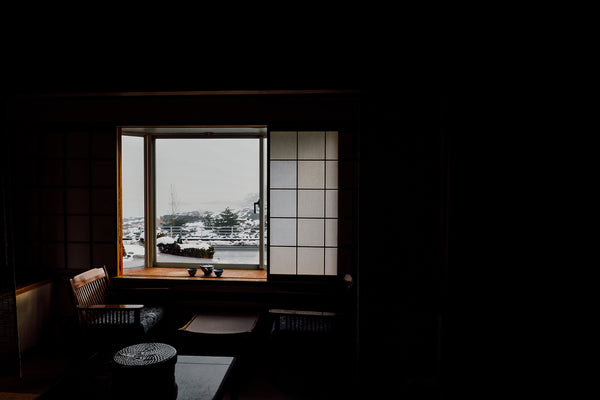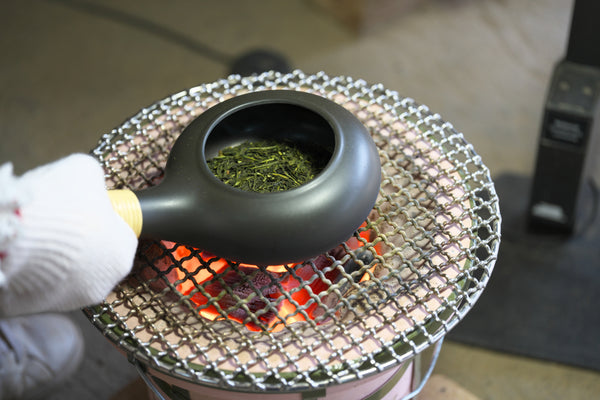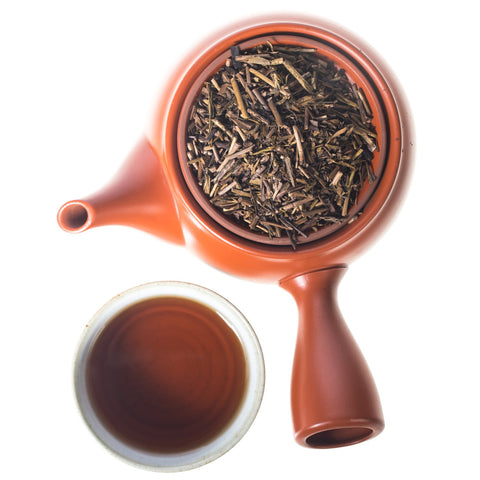We couldn’t think of a better time to introduce this post to you. With the chilly weather outside, there’s nothing lovelier than the smell of roasted tea spreading throughout our lodgings. In a few simple steps, you can have your own roasted green tea — Hojicha at home, plus enjoy the wonderful scent of the tea.
Roasting green tea at home is excellent for a few different reasons:
-
Aromatherapy
Heating tea leaves for approximately 20 minutes over a low fire releases the compounds into the air, which produce the wonderful roasted smell we all love. It’s sweet, nutty, and absolutely delicious.
-
Salvaging tea you don’t like
This happens to the best of us. Perhaps you have bought some sencha green tea, which you’re just not too fond of. Maybe the taste is on the bitter side. Or perhaps you just have better options in your tea cupboard, and the sencha tea leaves just sit around gradually getting older. Roasting these tea leaves and making Hojicha might actually salvage the undesirable sencha leaves, giving them a sweeter, nuttier, and more pleasant taste.
-
Salvaging older tea
Sencha is harvested in the spring with an expiration date of one year since opening (or better yet, 6 months). Perhaps you opened your sencha tea back in spring and still haven’t gotten around to drinking it all. The taste and color of the tea leaves inevitably gradually becomes less vibrant. Roasting the tea leaves and making Hojicha is another excellent way to save the tea!

How To Roast Hojicha Tea At Home
- Prepare a frying pan with a fitting lid (cast iron is best, but anything else will do) and 15 grams of sencha green tea.
- Preheat the pan on high heat for 30 seconds.
- Turn off the heat.
- Spread the tea leaves evenly on the bottom of the pan.
- Put the lid on the pan and wait for 2.5 minutes.
- Open the lid and put the pan on medium heat. Roast the tea leaves for an additional minute, continually stirring the tea leaves.
*The tea leaves may start to brown but make sure they are not smoking or burning. If needed, turn down the heat. - After the minute is up, turn off the heat and keep roasting the tea leaves while stirring for an additional minute.
- Transfer the tea leaves to a bowl and allow them to cool completely.
- Proceed to brew the tea according to hojicha tea brewing instructions.
The newly made hojicha will be nutty, caramelly, roasted, and even slightly smoky. The wonderful taste will not only linger on the palate, but the scent will also spread throughout the house, like the alluring smell of fresh-baked cookies on a chilly winter day.
What Is A Cha Koro?
Cha Koro are also known as tea incense burners or simply tea burners. They are a common type of incense burners used in homes and tea shops throughout Japan. It looks very much like an aroma lamp, with a space for a tea candle and a dish on top to hold the tea leaves.
Cha Koro are often used to set a warm and inviting ambiance inside of a tea house or tea shop. The relaxing aroma of roasting tea leaves immediately puts people in a good mood, anticipating their first sip of delicious tea.
To use a Cha Koro, simply pace one teaspoon of tea leaves on top of the burner and wait for the aroma to fill the room. This may take anywhere up to 20 minutes. It is time to change the tea leaves when they have turned very dark and no longer produce a pleasing aroma.
While the Cha Koro made in Japan are produced using special clay and have a certain aesthetic, if you cannot find one, feel free to experiment with a regular aroma oil burner.
Any tea type is great to use with a Cha Koro. Of course, in Japan, Japanese teas like sencha, hojicha, and genmaicha are usually used. Experiment to find your favorite scent. You will definitely notice how the aromas transform from their usual dry state when they are being roasted. It’s also great to use older teas, teas which you aren’t so fond of, or even used leaves!

